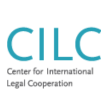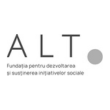Organizații vizate:
Achiziții de bunuri și contractări de servicii
- Detalii
- Categorie: Achiziție bunuri, Contractare Servicii
Adventist Development and Relief Agency from Moldova (ADRA) is announcing a contest for the selection of an Auditor/Audit Company to conduct an external audit to do an organisational audit with emphasis on "Protecting the Crisis Affected Persons
Informațiile prezentate în articolul de mai jos pot să nu mai fie actuale sau să nu mai reflecte activitățile și programele curente. Anunțul este păstrat în arhivă pentru a asigura transparența și accesul public la informațiile despre inițiativele și proiectele implementate anterior.
Adventist Development and Relief Agency from Moldova (ADRA) is announcing a contest for the selection of an Auditor/Audit Company to conduct an external audit to do an organisational audit with emphasis on "Protecting the Crisis Affected Persons from Harm" project.
BACKGROUND AND OVERVEW OF THE PROJECT:
ADRA with financial support from Norwegian Refugee Council (NRC) has been implementing the project "Protecting the Crisis Affected Persons from Harm" starting from 01 February 2024. Based on this, under this particular project, ADRA Moldova envisages a series of main activities aimed at facilitating the integration of the displaced persons from Ukraine residing in Moldova as well as local vulnerable persons (persons at risk) into the Moldovan social, educational, economic and cultural context.
Under the Grant Agreement for this project, ADRA is required to ensure the external auditing for the organization (01.01.2024 – 31.12.24) with emphasis on the above mentioned project (duration from 01/02/2024 to 30/11/2024).
ADRA is hereby announcing a contest for the selection of an Auditor/Audit Company to conduct an external audit for the organization (01.01.2024 – 31.12.24) with emphasis on the project ,,Protecting the Crisis Affected Persons from Harm” (duration from 01/02/2024 to 30/11/2024).
The audit shall be carried out in accordance with international auditing standards, and with the requirements of the Government of Moldova (as specified in the Terms of Reference/ToR for External Audit below).
CONTENT OF THE OFFER:
The offer must include the following documents (obligatory requirements):
- Audit license (scanned copy);
- Company profile, including information about the audit company, management, contact details.
- Experience in the field – interested audit companies must have experience in auditing non-profit organizations in the Republic of Moldova (minim 3 years);
- Qualification of the team that will perform the audit (minimum 5 years of experience for the audit manager and minimum 2 years for the other team members);
- CVs of the persons / auditors who will be directly involved in the audit;
- Recommendation letter (at least 1)
- The financial offer, indicating the price of audit services in MDL (including VAT).
SUBMISSION DEADLINE:
The deadline for submission of offers is: October 15, 2024, 10:00 a.m. The offer shall be sent electronically to the following emails: andreig_u@yahoo.com and accountant@adra.md or in a sealed envelope to the ADRA address: 49 Tighina Street, office 204, Chisinau, Republic of Moldova. For any questions, you may contact us on the following phone number: 069123895
TERMS OF REFERENCE (“ToR”)
FOR EXTERNAL AUDIT
for the " Protecting the Crisis Affected Persons from Harm" Project
(Project Code MDFM 2313 )
|
Entity subject to Audit: ADRA Country: Republic of Moldova Reference / date of request for services: 04/10/2024 Starting date of the Audit: 18/10/2024 Ending date of the Audit for the project: 20/12/2024 Ending date of the Audit for organization 15/01/2025 |
A. Key Information about the Grant Agreement
|
Information about the Grant Agreement |
|
|
References number and date of the Grant Agreement |
IPMD2402 from 01.02.2024 |
|
Grant Agreement title |
"Protecting the Crisis Affected Persons from Harm" |
|
Country |
Moldova |
|
Coordinator |
Norwegian Refugee Council (NRC) |
|
Entity Subject to the Audit |
ADRA |
|
Start date of the implementation period of the Project |
01/02/2024 |
|
End date of the implementation period of the Project |
30/11/2024 |
|
Total [accepted] [eligible] cost of the Project |
3,827,732-27 MDL |
|
Grant maximum amount |
3,827,732-27 MDL |
|
Total amount received to date by the Coordinator from donor |
1,735,957-07 MDL |
|
Financial Statements Subject to the Audit |
February 2024 to November 2024 |
|
Auditor |
_________ (Name and address of the audit firm and names/positions of the auditors or /single auditor) |
B. Base Terms
II. General Information
These terms of reference (ToR) are prepared for the assignment of an external Auditor/Audit Company, stated in the Grant Agreement, which is to be carried out according to the international standards and as per the requirements of the Government of Moldova.
III. Definitions
In these ToR and its Annexes which form an integral part of these ToR, the following terms apply:
- “Audit” ->in general, this refers to the audit of procedures, activities, outcomes, and internal control systems. This involves the fulfilment of or compliance with defined requirements and standards.
- “Auditor”-> refers to the audit firm contracted for the audit services and in particular to the partner or other person in the audit firm who is responsible for the engagement and for the report that is issued on behalf of the firm, and who has the appropriate authority from a professional, legal or regulatory body.
- “Audit report” ->the report carried out by the Auditor.
- “Audit Service Contract” ->contractual document (legal commitment) signed between the Entity and the external Auditor/Audit Company, and which constitutes the specific legal basis for the audit services of the external Auditor. These terms of references and the Annexes of the ToR also form part of the Service Contract.
- “IPMD2402 Grant Agreement” (-> refers to the agreement signed between the NRC (Coordinating Office) and ADRA (Implementing Office) recipient of the funds/agreement partner.
- “Contractual Conditions” -> refers to the guidelines, rules, criteria which are set out in IPMD2402 funded grant agreement and it´s annexes for projects under the Project Implementation Contract signed between NRC and ADRA.
- “Entity”-> refers to the legal entity that is receiving the funds from the Prime Recipient and is subject to audit. The entity subject to this audit is ADRA. It is the organisation responsible for implementing the Project, which is using the funds for the Project, and which is required to report on the Project and the use of funds.
- “Project” -> refers to the project subject to audit as described at Section VI (Scope) of these ToR. The Project is entitled "Protecting the Crisis Affected Persons from Harm". “Project Implementation Contract” -> refers to the Contract signed between NRC and ADRA as the implementing partner who is subject to audit.
IV. Subject of the Engagement
The subject of this engagement is the audit of the final Financial Statement(s) in connection with the Grant Agreement. As per the IPMD2402 Grant Agreement and Project Implementation Contract with the Prime-Recipient of the Grant, the Entity has to carry out the Audit for the organization (01.01.2024 – 31.12.24) with emphasis on the above mentioned project (duration from 01/02/2024 to 30/11/2024)
- The Audit for the organization <01/01/2024 – 31/12/24>
- The final audit of the project concerns the period of Life of Project (LOP) covering <01/02/2024 to 30/11/2024>.
The Entity intends to engage one independent external auditor for the term of Project Audit with the following key deliverables:
- Audit report
- Management letter
- Report on factual findings
V. Objective
1. The Auditors’ primary task is to verify the expenditure and financial management of the organization with emphasis on the IPMD2402 project funds, to ensure that expenditure is supported by appropriate documentary evidence, that is in compliance with the IPMD2402 Grant Agreement and the NRC Project Implementation Contract:
- Verification that relevant financial procedures are suitable designed and operating effectively
- NRC funds have been used in accordance with the conditions of the relevant financing agreement (i.e. PIA) and only for the purposes for which the financing was provided;
- All necessary supporting documents, records, and accounts have been kept in accordance with donor and local legislation requirements (clear linkages should exist between the books of account and reports presented to NRC);
- All expenditure charged to NRC funded projects are exclusive and no duplication of charges to other donors is revealed;
- All cash and bank accounts balances are reconciled;
- All outstanding accounts receivable and accounts payable balances are itemised by vendor and clearance time frame.
- Verification of compliance of expenses with budget items
2. Where expenditure is not supported by sufficient documentary evidence, or where it is not properly incurred, the Auditor has no discretion; he must report the matter and the amounts as a proposed disallowance. The subsequent decision as to whether to issue a recovery order is one made by NRC after considering all known facts/mitigating circumstances leading to the provisional disallowance as reported by the auditor. The Auditor plays no part in the decision on whether to issue a recovery order.
VI. Scope of Work and Reporting
1. The Audit will be performed at ADRA. The Auditor should confirm the location(s) for the Audit with the Entity prior to the start of the Audit and ensure that relevant supporting documents as well as key staff will be available during the Audit.
The audit shall be carried out in accordance with the standards specified in these terms of reference and shall include such tests and verification procedures as the Auditors consider necessary under the circumstances and:
· ISA 800 ,,Special Considerations Audits of single Financial Statements and specific elements, accounts, or items of a financial statement” and ISA 200 (Overall objectives of the independent auditor and the conduct of an audit in accordance with international standards on auditing) paragraphs 18 and 20. Of notable importance are ISA 240 (the Auditor’s responsibility to Consider Fraud and Error in an Audit of Financial Statements).
VII. Engagement Context
1. The Auditor should obtain a preliminary understanding of the engagement context based on these ToR. This ToR and its Annexes contain key information including the reason for the audit for the organization (01.01.2024 – 31.12.24) with emphasis on the Project, logistics, the Contractual Conditions for the Project, the Entity, and the Project subject to audit, other information, contact details and key documents. The term 'Contractual Conditions' refers to the guidelines, conditions, rules, criteria which are set out in the grant. Furthermore, it refers to the Project Implementation Contract signed between NRC and the Entity. The Contractual Conditions for this Project are set out in:
- the IPMD2402 Grant Agreement signed by NRC (Coordinating Office) and ADRA on 01/02/2024
- Financial Reports
- Conditions for Eligibility of Expenditure
If Contractual Conditions are not clear the Auditor should enquire clarification of the Entity or NRC.
2. Planning, procedures, documentation, and evidence:
The Auditor should perform the audit in accordance with the procedures described below, which cover documentation and evidence, planning, fieldwork, and reporting. The Auditor should exercise due professional care and judgment and determine the nature, timing, and extent of audit procedures to fit the objectives, scope and context of the audit.
(1) Planning
(a) Preparation of the Audit, Planning Activities
The Auditor must prepare the audit so that it is performed in an effective and efficient manner and agree on timing for carrying out the audit, notably with regard to fieldwork. The Auditor will then also confirm with the Entity the locations(s) and ensure that relevant supporting documents as well as key staff will be available during the audit. Adequate planning involves that appropriate attention is devoted to important areas of the audit, that potential problems are identified and resolved on a timely basis and that the audit is properly organised and managed in order to be performed in an effective and efficient manner.
The Auditor should have an audit plan documenting the audit approach and key principles of planning, fieldwork, and reporting.
(b) Preparatory Meeting with the Entity
The Entity foresees a preparatory meeting with Auditor which will be held by conference call or in person. The purpose of this meeting is to discuss the planning, fieldwork and reporting of the audit and to clarify outstanding issues. During the preparatory meeting, the Auditor may request additional information and documents that he/she/it considers necessary or useful for the planning and fieldwork of the audit.
(2) Fieldwork
The fieldwork shall commence as soon as possible and not later than 5 calendar days after the signature of the Service Contract. The main task during the fieldwork will be to perform substantive tests. Key information about the testing process must be provided in the Audit report (Annex 2 Appendix 3 to Annex 2). The Auditor shall also pay attention to section VI paragraph 5 of these terms while conducting the Audit.
(3) Draft Report and Closing Meeting
At the end of the fieldwork, the auditor shall create the draft report and organize a closing meeting with the Entity in order to discuss the findings, obtain its initial comments and agree on additional information to be provided.
(4) Audit Documentation and Evidence
The Auditor shall prepare audit documentation and obtain sufficient appropriate audit evidence to support audit findings and to draw reasonable conclusions on which to base the audit opinion. The Auditor shall use professional judgment to determine whether audit evidence is sufficient and appropriate taking into account the Contractual Conditions.
(5) Audit Report and Management Letter
The auditor is expected to present an audit report and a Management Letter. The Auditor should submit to the Entity one consolidated portable document format (PDF) copy and three (3) original copies of the Audit Report in English (not as separate pages) for the NRC (Coordinating Office) funded project by 20 December 2024. The Entity will forward the original report to NRC for processing. The Audit Report and the Management Letter shall be submitted in English. The Auditing company may prepare the Report and Letter in Romanian or Russian, but must also submit the Certified English translation of both documents.
b) Conduct of the Audit
In conducting the Audit, the Auditor shall:
(1) Carry out tests of transactions as are necessary, in order to obtain an understanding of the accounting system, to assess its adequacy as a basis for the preparation of the financial statements and to establish whether adequate records have been maintained as required by NRC regulations and/or financial rules of the IPMD2402.
Conduct an in-depth review of the internal control systems to have sufficient knowledge of the procedures underpinning the systems
(2) Confirm that funds have been used in accordance with the applicable rules of the 100002/034 and that they have only been used for the purposes for which they were intended for and in accordance with the conditions under which the funding was provided
Confirm that Goods and services financed have been procured in accordance with sound procurement procedures set out in the IPMD2402 procurement guidelines and NRC Procurement Policy
(3) Verify
(a) that the expenditure verification is in line with the IPMD2402 Grant Agreement and Project Implementation Contract (including all Annexes thereto).
that it is evident from the bookkeeping records and from the audit of accounts that the expenditures are covered by the revenues, and it must thus be verified that there is no duplicate financing by external funding bodies.
(b) that transactions are supported by reliable invoices and receipts and supporting documents.
the eligibility of expenses given the starting date of the monetary expenditure.
(c) that transactions have been reviewed and authorized by appointed personnel.
that all expenses are recorded in the Entity’s accounts and are backed by originals of supporting evidence
- to audit the proper bookkeeping,
- to audit the accounts on the basis of original vouchers,
- to cancel the original vouchers,
- to audit the plausibility of expenditures,
- to assign expenditures to the items in the cost schedule
- to audit the overall conduct of business.
(d) that financial transfers (bank, cash) are understandable and in line with the reported expenditures.
that where special accounts have been used, they have been maintained in accordance with the provisions of the relevant IPMD2402 and NRC Agreement/Project Implementation Contract.
(e) that each set of accounts contains a clear description of cash flows that is documented in the form of currency exchange confirmations and bank statements.
that if any interests have been generated in the Entity account.
(f) that the awarding of sub-contracts for delivery and supplies, work and services is in compliance with the relevant procurement procedures stablished by the donor.
that purchased goods are listed correct in the inventory list.
3. The Auditor will report to NRC any attempt by the Entity to restrict the scope of the Audit, or any lack of cooperation on the part of the Entity. The Auditor will consult NRC on what action may be required, whether or how the Audit can be continued and whether changes in the Audit scope or the timetable are acceptable.
VIII. Responsibilities of the Entity
1. The Entity is responsible for preparing Financial Statements for the organization and for the Project financed by the Grant Agreement in compliance with such agreement and providing it to the Auditor, and for ensuring that these Financial Statements can be properly reconciled to the Entity’s accounting and bookkeeping system and to the underlying accounts and records. Notwithstanding the procedures to be carried out, the Entity always remains responsible and reliable for the accuracy of the Financial Statements.
The Entity is responsible for the factual statements which will enable the Auditor to carry out the procedures specified and will provide the Auditor with a written representation letter supporting these statements, clearly dated, and stating the period covered by the statements.
2. The Entity accepts that the ability of the Auditor to perform the procedures required by this engagement effectively depends upon the Entity providing full and free access to the Entity’s staff and its accounting and other relevant records.
IX. Financial Statements
The Financial Statements to be audited, among others, include:
1. a Statement of Income and Expenditure,
a Statement of Financial Position (cash and bank balances)
2. a Statement of Changes in Accumulated Funds
a Statement of Cash Flow
3. The Statement of Assets and Equipment held by the project as at completion of project
the Accounting Policies Adopted and Explanatory Notes,
4. the Financial Reports compliant with the terms and conditions of the IPMD2402 Grant Agreement
X. Audit Report(s)
1. The Auditor shall report on his factual findings and recommendations in accordance with the requirements of these Terms. The report shall be objective, clear, concise, timely and constructive. The use of Appendix 1 (“Statement of application of funds” -template) and 2 (“Audit Report”) to Annex 2 is compulsory. The Report shall be written in English. One report for each of the three Audits is required.
The Auditor agrees to a disclosure of his report to ADRA Moldova and NRC in connection with the requirements as set out in the Grant Agreement with the provision that the report will be disclosed in complete, unabridged form including all its attachments.
2. The Contractor shall ensure that the audit reports are neatly and legibly compiled containing adequate documentation to demonstrate the nature and extent of the Auditing Services and containing sufficient audit evidence to support all audit conclusions, findings, and opinions.
The Contractor shall deliver to ADRA an electronic copy of the audit reports.
3. Where the audit reports can only be read with the use of Contractor’s proprietary software, the Contractor will ensure a version of software is available upon which the reports can be accessed for a period of 10 years from the date of the submission date of the first report.
XI. Management Letter
The Auditor shall prepare a management letter, in which the Auditor shall:
- Give comments and observations on the financial/accounting records, systems and controls that were examined during the course of the Audit.
- Identify specific deficiencies or areas of weakness in systems and controls and make recommendations for their improvement.
- Communicate matters that have come to his/her attention during the Audit which might have a significant impact on the implementation of the project.
- Give comments on the extent to which outstanding issues/qualifications issues have been addressed.
- Give comments on previous audits’ recommendations that have not been satisfactorily implemented.
- Bring to the recipient’s attention any other matters that the Auditor considers pertinent, including ineligible expenditures.
Ideally, the management letter should also include responses from the implementing Entity to the issues highlighted by the Auditor.
XII. Follow-up
The Entity may request the Auditor for further assistance in the contradictory procedures and the follow-up of the final audit report. This is not covered by these ToR and if this is required the Entity will issue an addendum to the applicable contractual document for this engagement.
XIII. Compliance with applicable law
The Auditor, at the time of submitting the offer and beyond over the years of the assignment, if awarded, must comply with applicable environmental, social and labour law obligations established by Union law, legislation, collective agreements or the international environmental, social security and labour conventions. The same compliance must be verified with regards to fiscal matters.
XIV. Fraud, corruption, irregularity, etc.
1. If, during the course of an audit engagement, the Auditor or any of the Auditor employees detect possible fraud, malfeasance, breach of statutory requirements, or material discrepancy of any nature, the Auditor shall immediately report the facts of the matter to NRC.
Immediately upon becoming aware of any matter that the Auditor suspects on reasonable grounds concerns or may concern corrupt conduct the Auditor shall in writing inform and make known the matter to NRC.
2. The Auditor shall not give any advice or information regarding the matter to any person whatsoever in the absence of written directions from NRC or unless otherwise required by law.
XV. Other Matters
1. The Auditor shall not subcontract without prior written authorisation from ADRA and NRC.
The Contractor shall take all appropriate measures to prevent sexual harassment, exploitation and abuse of anyone (child or adult) by its employees or any other persons engaged and controlled by the Contractor to perform any services under the Contract. Any breach of the provision by the Contractor shall entitle NRC to terminate the contract with immediate effect.
2. Final Project Balance Calculation: The final project balance is the difference of funds received by the project minus what was expended (including overhead). Should funds received exceed funds expended, the country office is obligated to return those funds to NRC or the largest donor-office/donor institution. The final project balance is not Budgeted Amount minus Actual Expended.
XVI. Terms of payment, Insurance and Liability modalities for Auditors
The terms of payment and liability modalities for auditors and will be defined in the Audit Service Contract.










